American orbital launch vehicle. Commercial version of Titan 34D military booster. It differed in having a lengthened second stage and a 4 m diameter payload shroud to handle shuttle-class or Ariane-type dual payloads.
Status: Retired 1992. First Launch: 1990-01-01. Last Launch: 1992-09-25. Number: 4 . Payload: 14,515 kg (32,000 lb). Thrust: 12,450.00 kN (2,798,870 lbf). Gross mass: 680,000 kg (1,490,000 lb). Height: 47.30 m (155.10 ft). Diameter: 3.05 m (10.00 ft). Span: 9.20 m (30.10 ft). Apogee: 40,000 km (24,000 mi).
The design originated as the losing Martin submission for the USAF Medium Launch Vehicle competition (which was awarded to Douglas for their Delta 7000 series in January 1987). However commercial buyers had already booked flights on the booster in September 1986. Availability was however restricted due to renovation of Cape Canaveral pad 40 from July 1990 to 1992.
LEO Payload: 14,515 kg (32,000 lb). Payload: 1,850 kg (4,070 lb) to a GTO. Launch Price $: 136.600 million in 1992 dollars.
Payloads : 1990 January 1 - . 00:07 GMT - . Launch Site: Cape Canaveral. Launch Complex: Cape Canaveral LC40. LV Family: Titan. Launch Vehicle: Commercial Titan 3.
Skynet 4A - . Payload: Skynet 4A [PAM-D2] / JCSat 2 [Orbus-7S]. Mass: 1,463 kg (3,225 lb). Nation: UK. Agency: MoD. Program: Skynet. Class: Communications. Type: Military communications satellite. Spacecraft: ECS/OTS. USAF Sat Cat: 20401 . COSPAR: 1990-001A. Apogee: 35,790 km (22,230 mi). Perigee: 35,782 km (22,233 mi). Inclination: 5.50 deg. Period: 1,436.10 min.
British military communications; 6 deg E. Military communications. Expected life approx 7 years. Owner/operator: Ministry of Defence, Main Building, Whitehall, London SW1A 2HB. Positioned in geosynchronous orbit at 6 deg E in 1990; 29 deg E in 1991; 65 deg E in 1991; 34 deg W in 1992-1999 As of 5 September 2001 located at 34.01 deg W drifting at 0.003 deg W per day. As of 2007 Mar 11 located at 63.46W drifting at 4.595W degrees per day.
JCSAT 2 - . Payload: JCSat 2 / Orbus-7S. Mass: 2,280 kg (5,020 lb). Nation: Japan. Agency: JCSAT. Program: JCSAT. Class: Communications. Type: Civilian communications satellite. Spacecraft: HS 393. USAF Sat Cat: 20402 . COSPAR: 1990-001B. Apogee: 35,877 km (22,292 mi). Perigee: 35,868 km (22,287 mi). Inclination: 0.10 deg. Period: 1,440.50 min.
Japanese domestic communications; 154 deg E. Domestic communications. Launching organization Martin Marietta. Launch time 0007 GMT. Positioned in geosynchronous orbit at 154 deg E in 1990-1999 As of 5 September 2001 located at 154.04 deg E drifting at 0.006 deg W per day. As of 2007 Mar 10 located at 116.78W drifting at 6.255W degrees per day.
1990 March 14 - . 11:52 GMT - . Launch Site: Cape Canaveral. Launch Complex: Cape Canaveral LC40. LV Family: Titan. Launch Vehicle: Commercial Titan 3. FAILURE: Second stage failed to separate due to a wiring error in the stage separation electronics, stranding the payload in low earth orbit.. Failed Stage: 2.
Intelsat 6 F-3 - . Payload: Intelsat 603 / Orbus-21S. Mass: 4,215 kg (9,292 lb). Nation: International. Agency: INTELSAT. Program: Intelsat. Class: Communications. Type: Civilian communications satellite. Spacecraft: HS 393. USAF Sat Cat: 20523 . COSPAR: 1990-021A. Apogee: 35,790 km (22,230 mi). Perigee: 35,786 km (22,236 mi). Inclination: 0.00 deg. Period: 1,436.20 min.
38 C-band and 10 Ku-band transponders. Placed in unusable low earth orbit after second stage separation failure. In May 1992 shuttle STS-49 snared the satellite, and in three EVA's the crew attached a new perigee boost motor, which then reboosted the satellite to geosynchrounous orbit. Positioned at 34 deg W in 1992-1997; 24 deg W in 1997-2001. Later assigned to Intelsat spin-off New Skies, which positioned it at 340? East, from where it provided C-band coverage of the entire Atlantic region, including virtually all of Latin America, Europe, Africa, the Middle East, and the eastern half of North America. As an inclined orbit satellite, IS-603 was best suited for voice/data trunking and video contribution, but could also be used for carrier-scale IP services, notably network bridging and expansion. It supplemented the prime Atlantic region coverage provided by the station-kept NSS 7 satellite, located at 338? East. As of 2007 Mar 11 located at 19.96W drifting at 0.012W degrees per day.
1990 June 23 - . 11:19 GMT - . Launch Site: Cape Canaveral. Launch Complex: Cape Canaveral LC40. LV Family: Titan. Launch Vehicle: Commercial Titan 3.
Intelsat 6 F-4 - . Payload: Intelsat 604 / Orbus-21S. Mass: 4,215 kg (9,292 lb). Nation: International. Agency: INTELSAT. Program: Intelsat. Class: Communications. Type: Civilian communications satellite. Spacecraft: HS 393. USAF Sat Cat: 20667 . COSPAR: 1990-056A. Apogee: 35,792 km (22,240 mi). Perigee: 35,780 km (22,230 mi). Inclination: 0.00 deg. Period: 1,436.10 min.
International communications; 63 deg E. Positioned in geosynchronous orbit at 38 deg W in 1990; 27 deg W in 1990-1992; 60 deg E in 1992-1999 As of 3 September 2001 located at 60.04 deg E drifting at 0.000 deg E per day. As of 2007 Mar 11 located at 61.81E drifting at 6.628W degrees per day.
1992 September 25 - . 17:05 GMT - . Launch Site: Cape Canaveral. Launch Complex: Cape Canaveral LC40. LV Family: Titan. Launch Vehicle: Commercial Titan 3.
Mars Observer - . Payload: Mars Observer [TOS-21H]. Mass: 2,573 kg (5,672 lb). Nation: USA. Agency: JPL. Class: Mars. Type: Mars probe. Spacecraft: Mars Observer. USAF Sat Cat: 22136 . COSPAR: 1992-063A. Planned Mars orbiter; lost contact during orbit insertion burn. Solar Orbit (Heliocentric). Spacecraft engaged in research and exploration of the upper atmosphere or outer space (US Cat B)..
From : Astronautix
GENERAL INFO
- Predecessor: Titan IIIC
- Created On: Android
- Game Version: 0.9.704.0
- Price: $39,078k
- Number of Parts: 472
- Dimensions: 41 m x 9 m x 5 m
PERFORMANCE
- Total Delta V: 56.5km/s
- Total Thrust: 23.7MN
- Engines: 23
- Wet Mass: 3.65E+5kg
- Dry Mass: -115,552kg
STAGES
| Stage | Engines | Delta V | Thrust | Burn | Mass |
|---|---|---|---|---|---|
| 1 | 8 | 1.9km/s | 9.5MN | 88s | 3.65E+5kg |
| 2 | 0 | 0m/s | 0N | 0s | 1.38E+5kg |
| 3 | 2 | 33.2km/s | 3.3MN | 85s | 74,897kg |
| 6 | 1 | 21.5km/s | 228kN | 1.8m | 8,793kg |

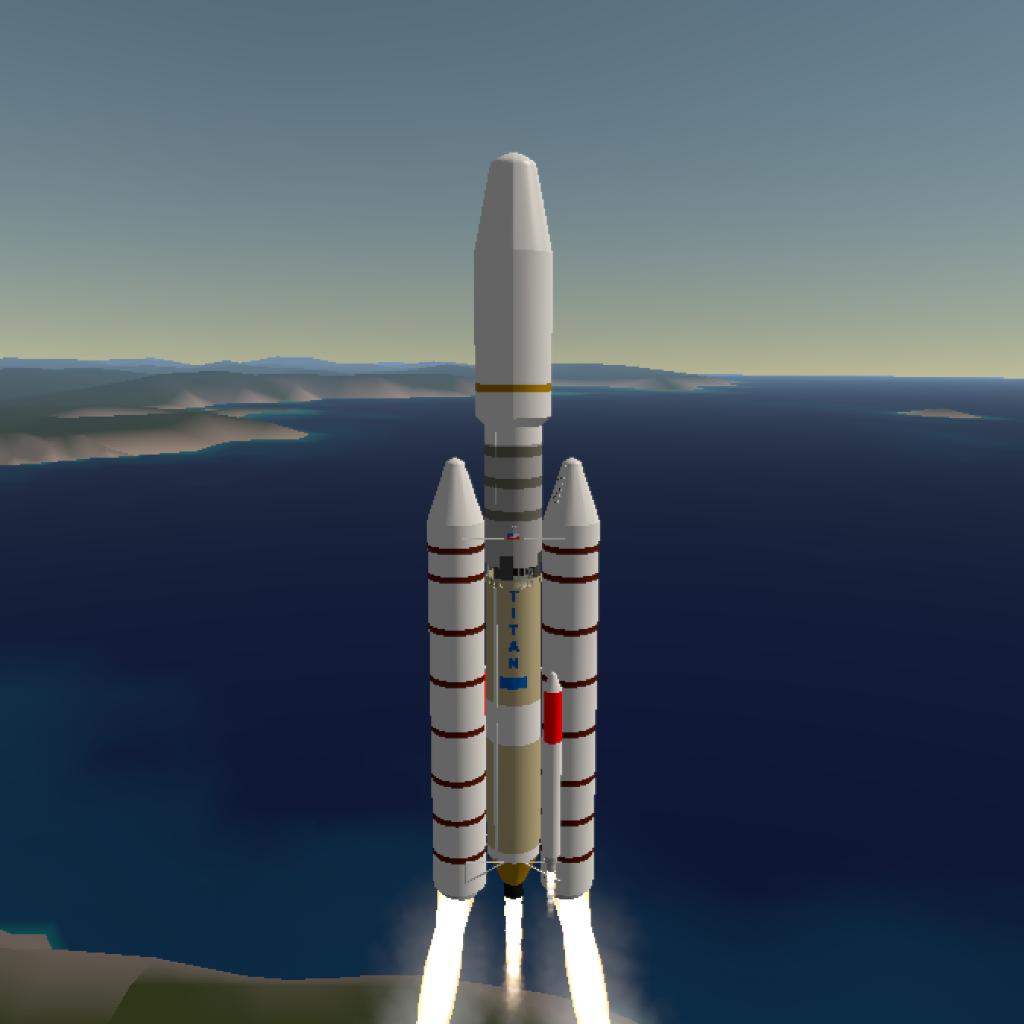
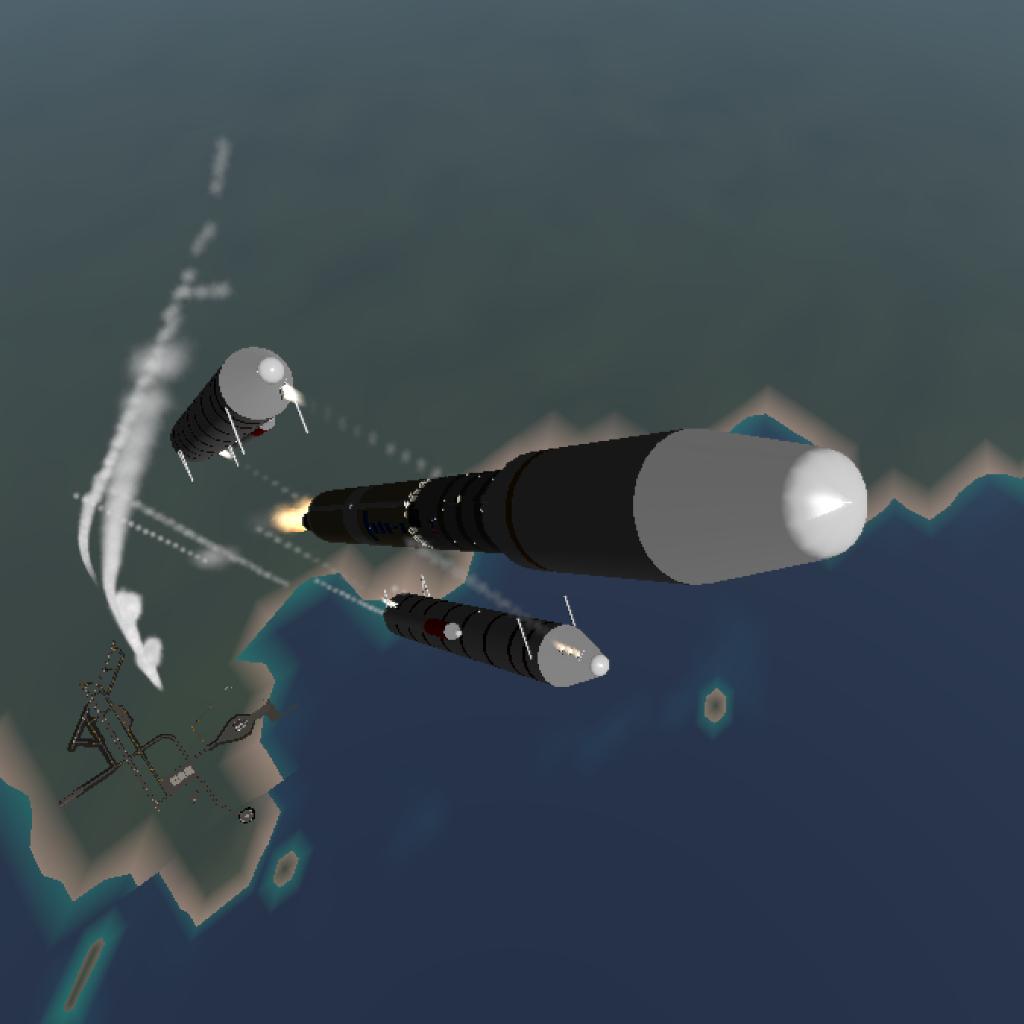
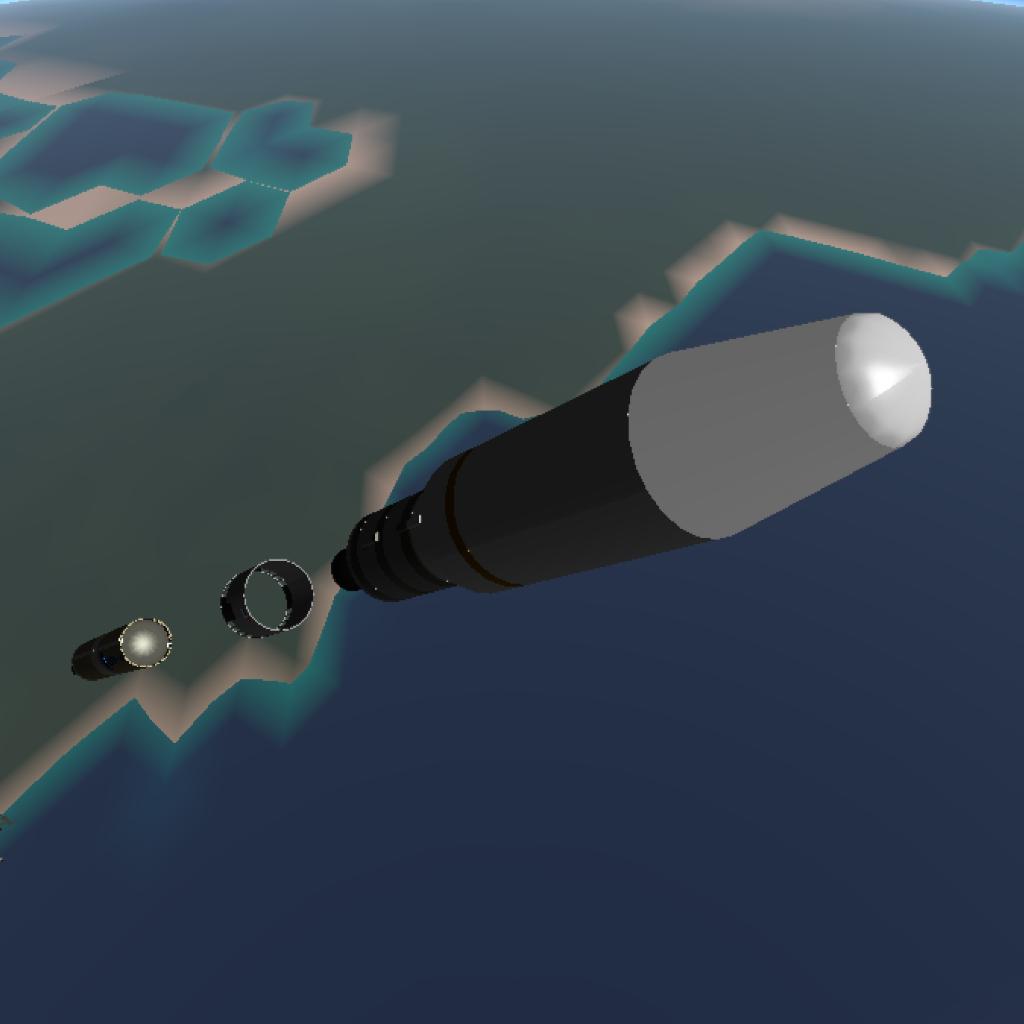
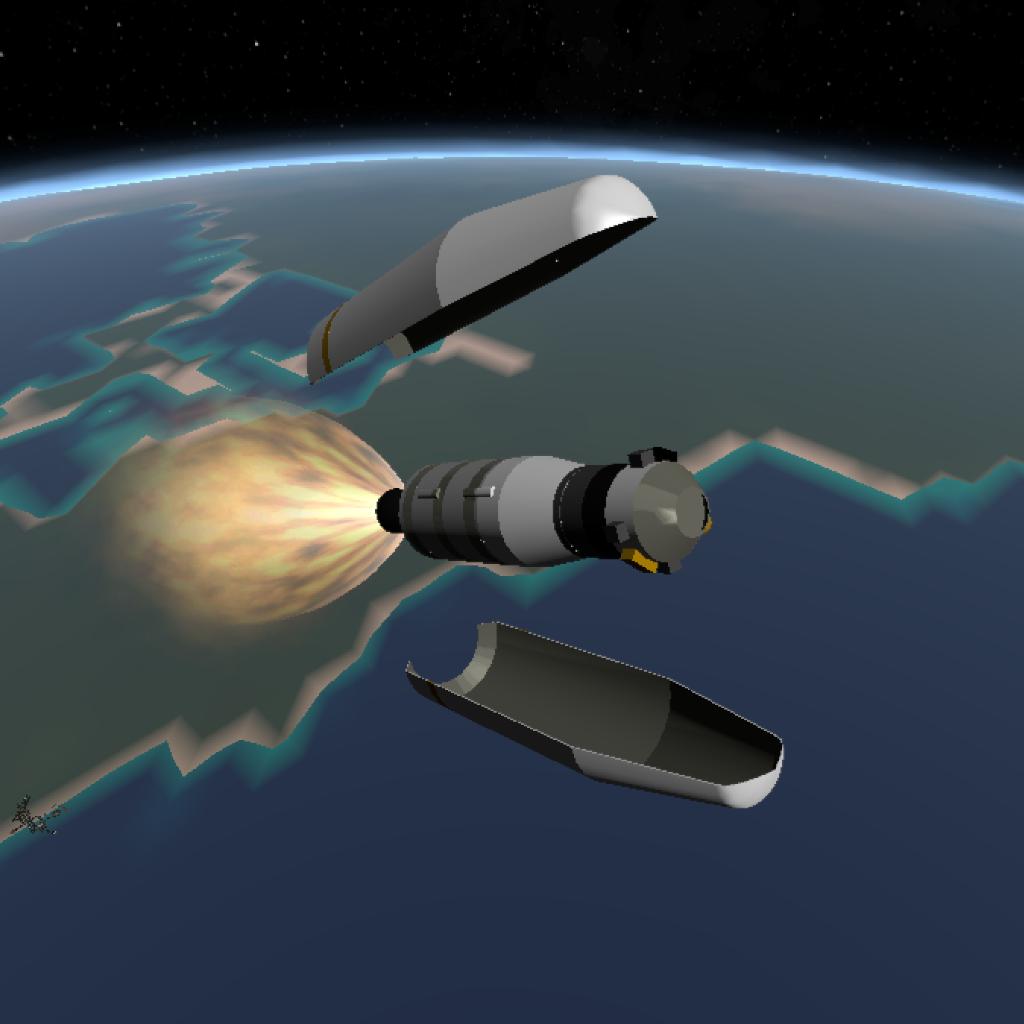
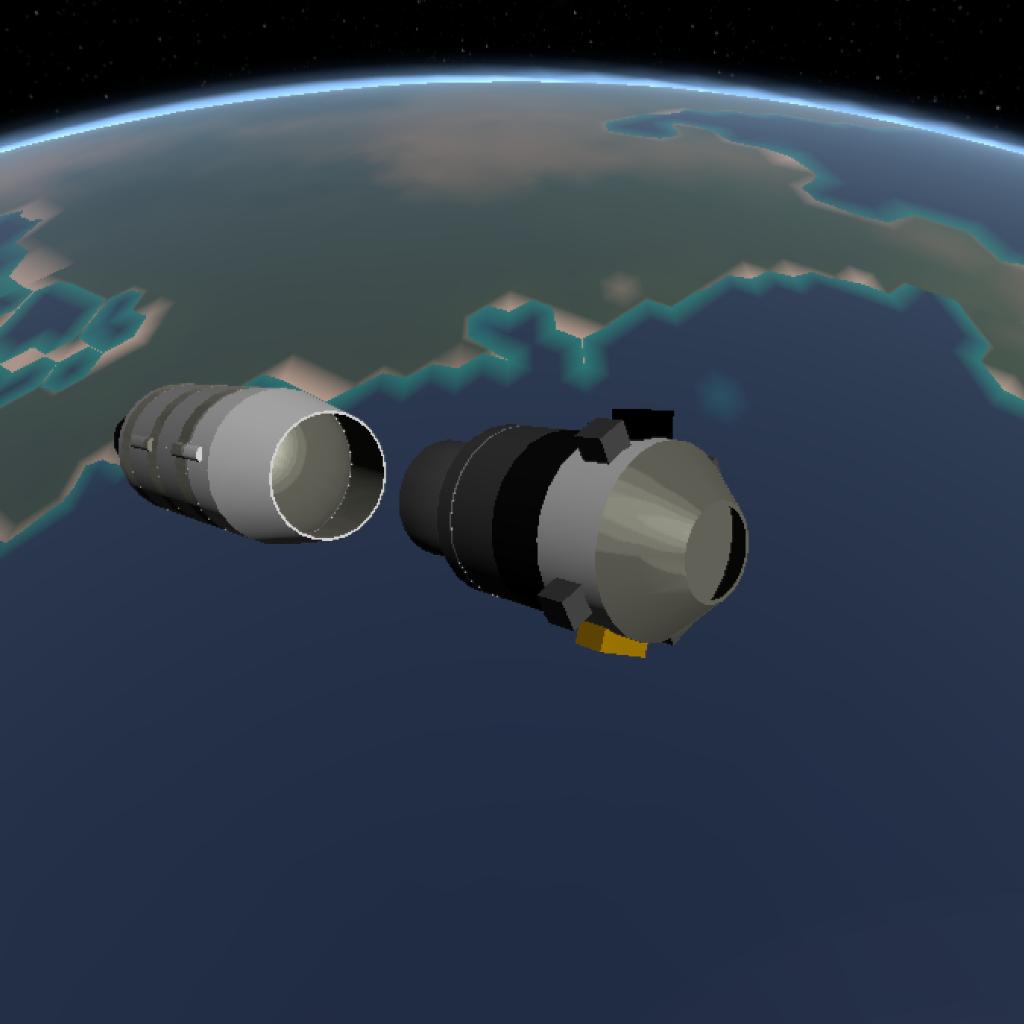
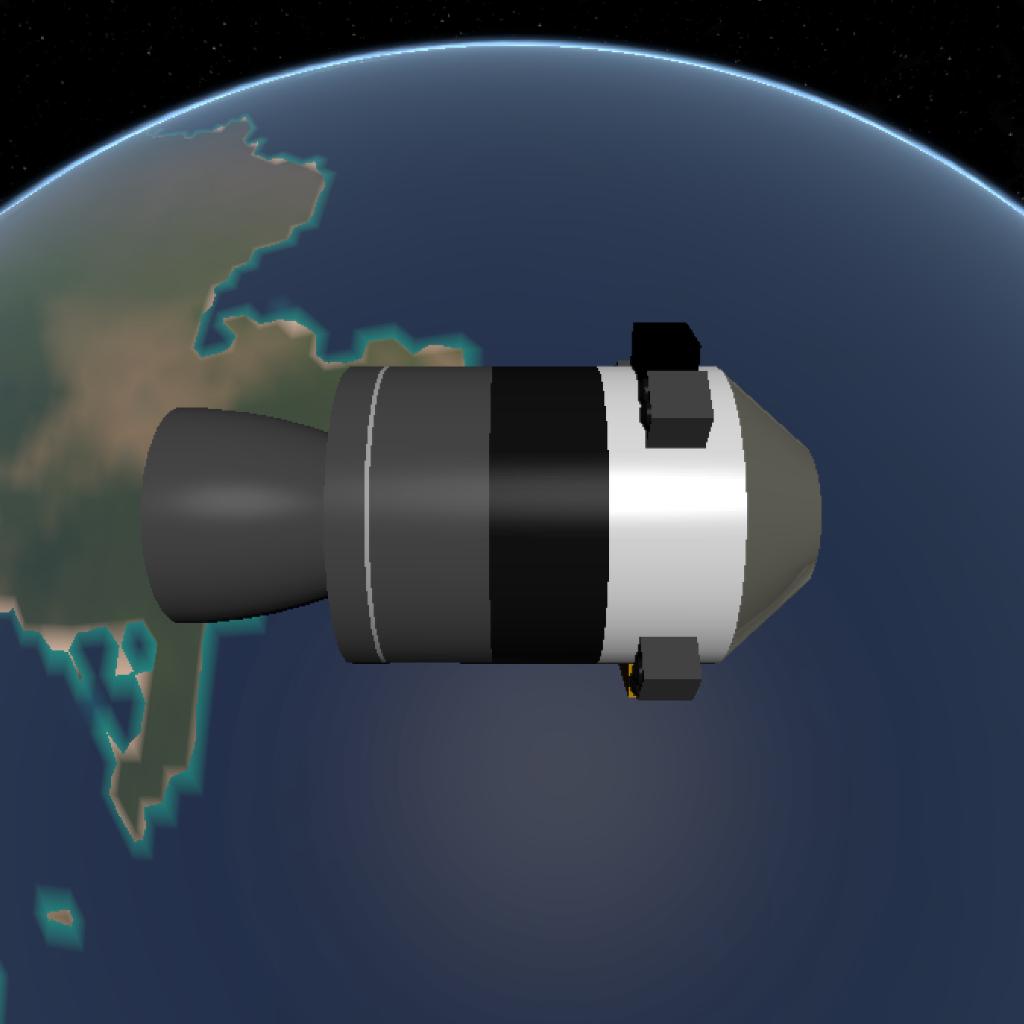
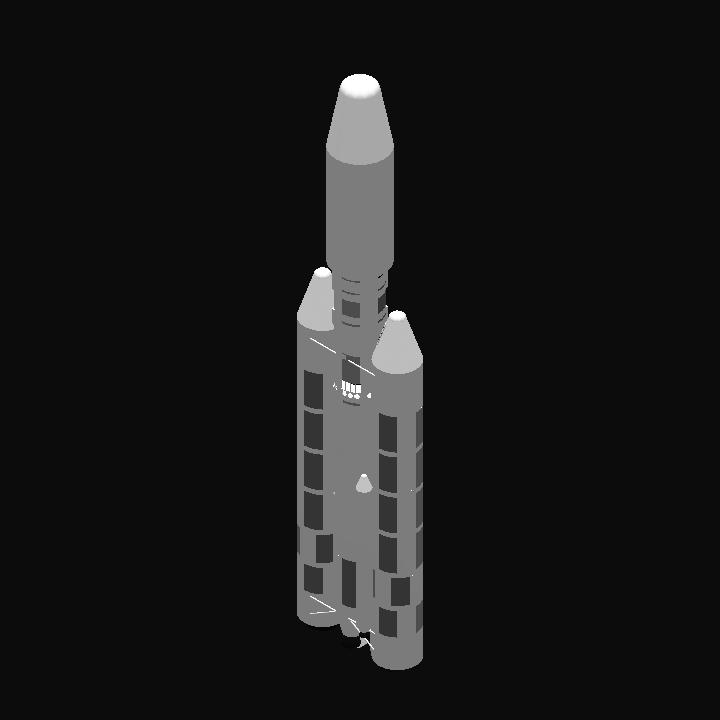
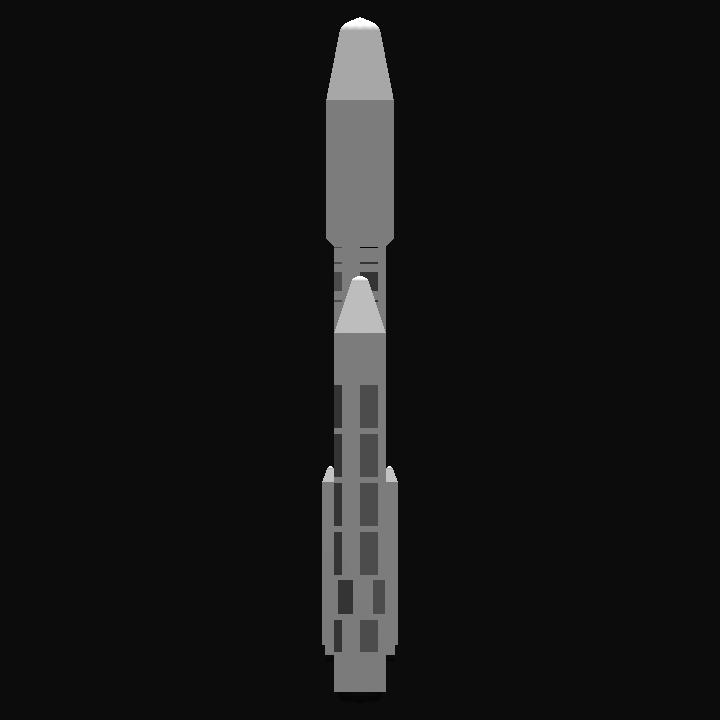
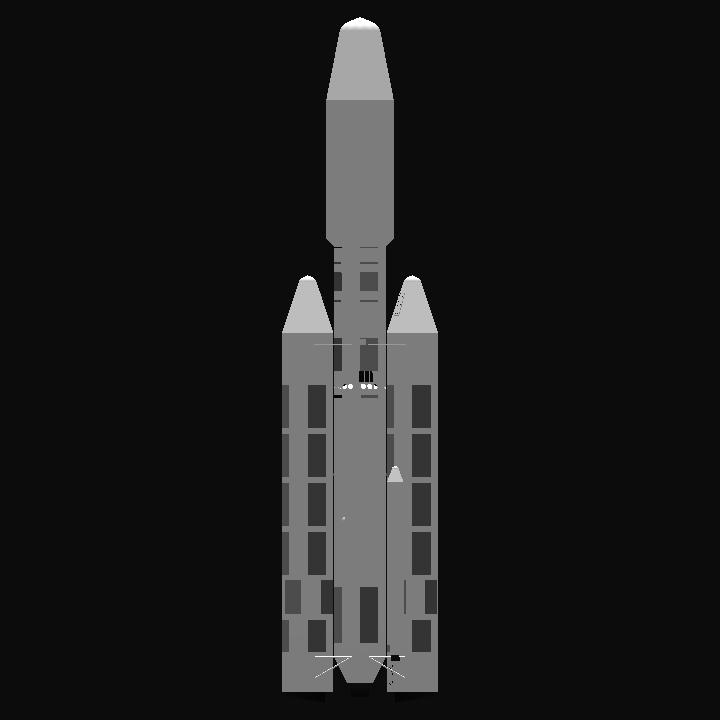
This rocket is really good... Thanks for making it.